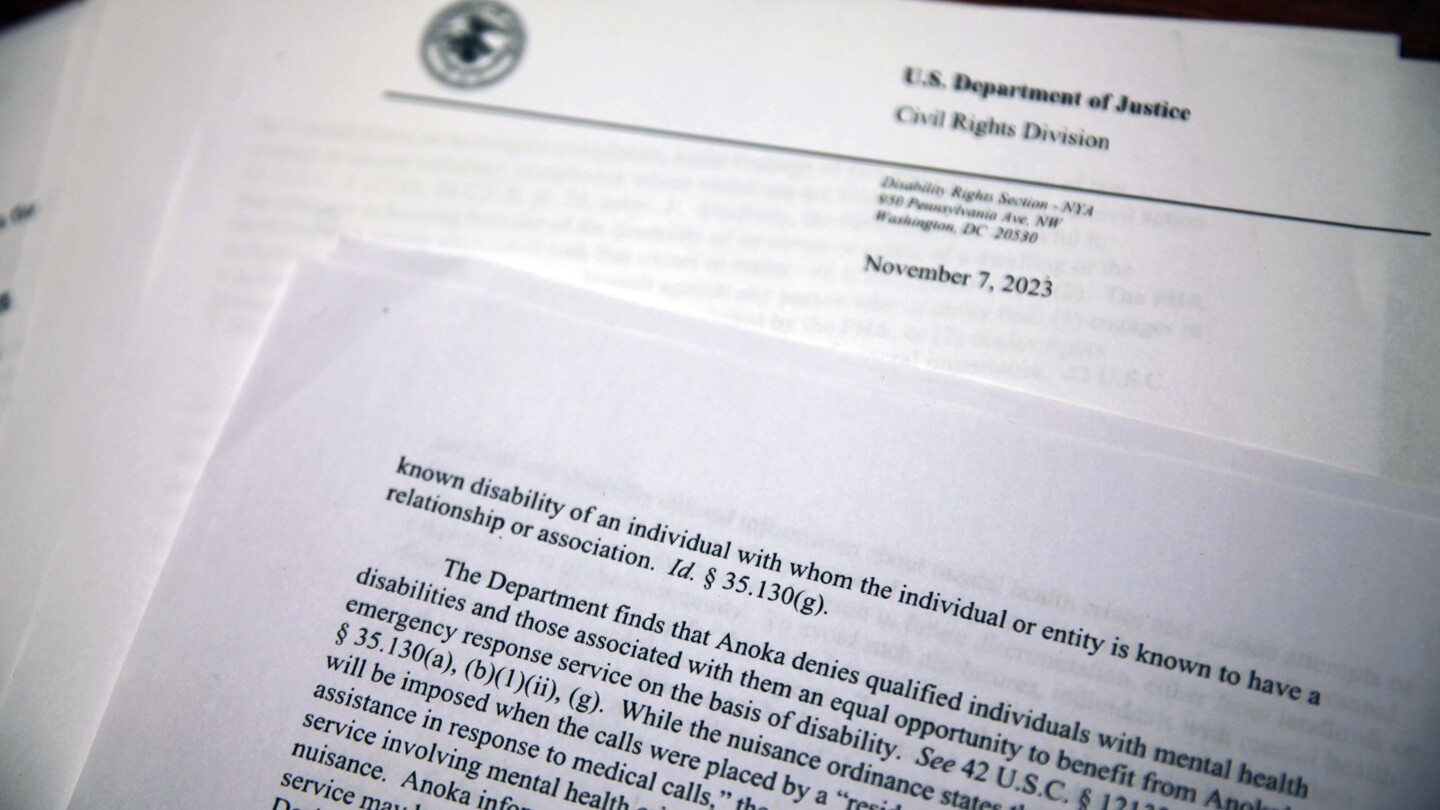Hundreds of communities across the U.S. have for several decades tried to reduce crime, fight gangs and tackle noise and other neighborhood problems through the use of “crime-free” or “public nuisance” laws encouraging and allowing landlords to evict renters when police or emergency crews are repeatedly called to the same addresses.
Long the subject of criticism that such policies are ineffective and enforced more harshly in poor neighborhoods and against people of color, the ordinances are now under scrutiny as sources of mental health discrimination.
Last November, the U.S. Department of Justice issued what it called a first-of-its-kind finding, telling a Minneapolis suburb that its enforcement of a crime-free law illegally discriminated against people with mental health disabilities.
Other cities and jurisdictions are joining a growing movement to rethink, rewrite or repeal such laws as criticism and lawsuits escalate.



Tbf if grandma needs the EMS called frequently then she probably shouldn’t still be living at home
What does ‘frequently’ mean here though? The article sure doesn’t say. It sounds to me like ‘frequently’ is whatever the landlord decides. Which could mean 3 times in 2 years. After all, 3 visits from the police in 2 years would sure make the tenant seem sketchy without knowing the details.
Depends on the color of the tenant.
Maybe that should be her decision. If someone prefers to die at home alone, that’s their choice.
If done correctly, with hospice, 100% agreed. If she’s going to the hospital via ambulance every month that’s over 100 thousand per year, easy. Could be closer to half a million, not to mention it takes EMS services away from other emergencies.
This is a dumb hypothetical
So your solution is to make her homeless for calling for medical services?! That’s fucking brutal.
No, it’s to get her into a residence with medically trained staff and supplies. That was quite a leap of logic you made
It’a not a leap of logic at all. In the U.S., assisted living facilities are extremely expensive and are out of the question for a huge portion of Americans. The few “affordable” urine-soaked care facilities in the U.S. are effectively torture camps for anyone who has not lost their mental faculties.
And that’s all assuming assisted living is even needed for someone who had to call EMS more than usual that year. Any proposed solution that involves eviction is a patently horrific solution.
It’s amazing to me that this would need to be explained. But, to be fair, if you are talking about this from the perspective of any country other than the U.S., then I could see your point in trying to get the person some elevated level of care. But still, eviction shouldn’t be part of the solution.